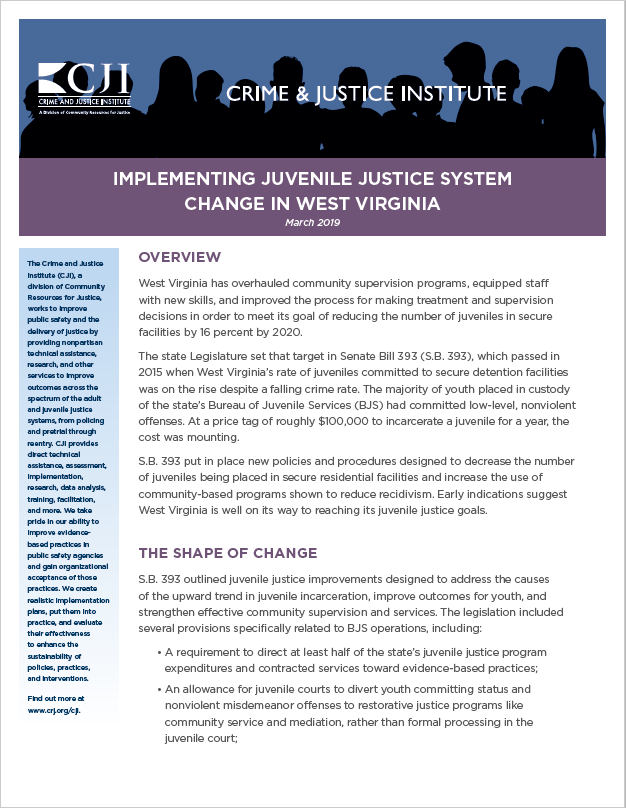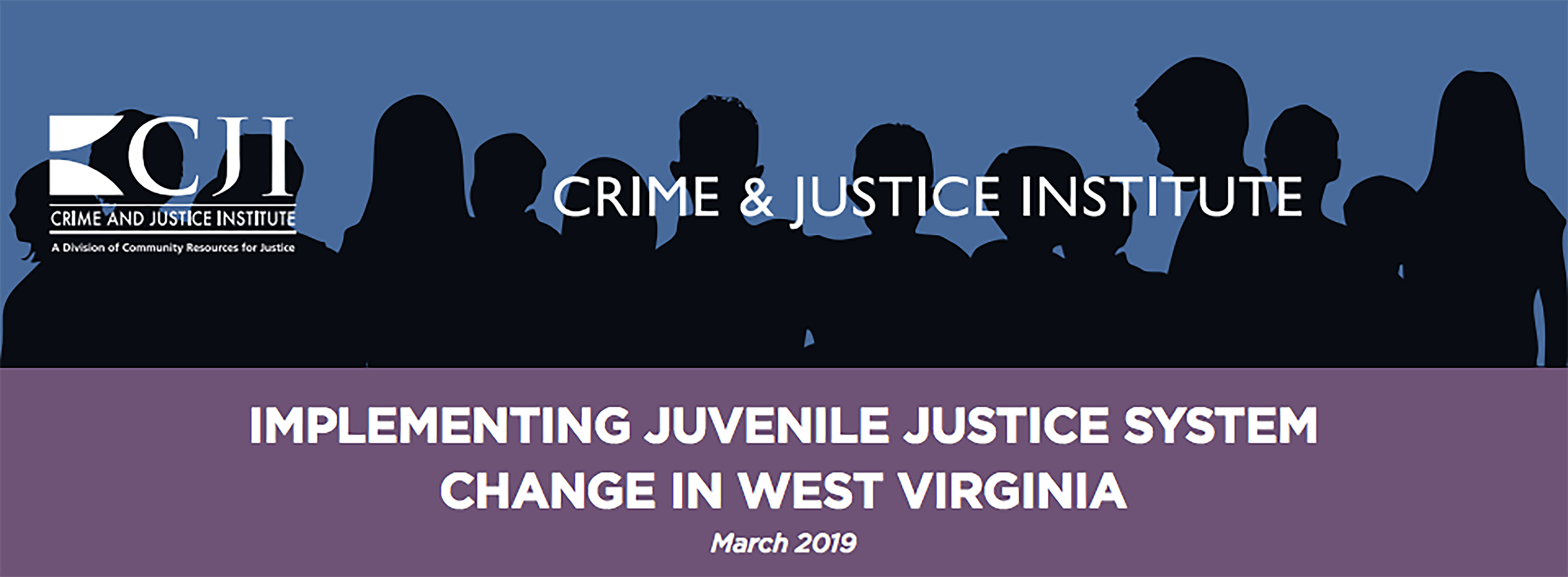

In 2015, West Virginia lawmakers recognized the need for significant change in the state’s juvenile justice system. The cost, both in dollars and poor outcomes for youth, demanded change.
Passage of S.B. 393 prompted development and implementation of new policies and procedures designed to divert juveniles who had committed low-level, nonviolent crimes from locked detention facilities to community-based alternatives with a better track record of reducing recidivism and improving outcomes.
BJS remains committed to the work that started with the passage of S.B. 393 to improve juvenile justice in West Virginia. The widespread support for these changes and dedication by BJS staff has ushered in a new culture of system improvement and a commitment to the incorporation of evidence-based practices in the agency’s operations. BJS has continued the process of rigorous staff training, program evaluation and improvement, and data analysis to track its progress on correctional outcomes and adjust as needed to improve the lives of the youth they serve.
Click here to read the report.